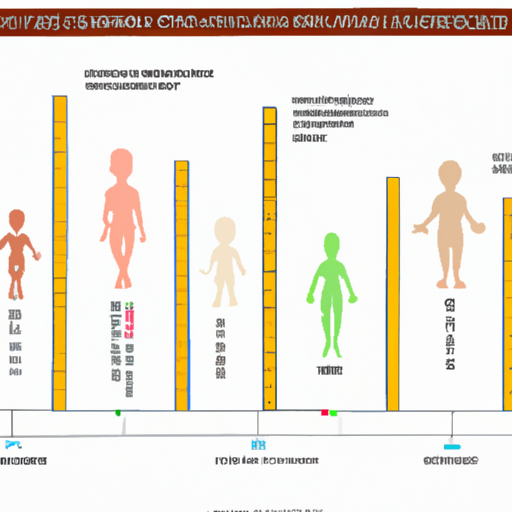As a caregiver, you may have heard your children, those under your care, or even yourself in your younger years ask, “When do you stop getting taller?” The answer isn’t as straightforward as you might think, but don’t worry, we’ll explain it in detail.
Understanding Growth
Growth is an intricate process that involves several factors. It’s not as simple as drinking milk or eating vegetables. Rather, it involves:
- Genes: Your inherited traits play a significant role in determining your height.
- Nutrition: A balanced diet is crucial for growth.
- Health: Chronic illnesses can affect growth.
- Physical Activity: Regular exercise promotes healthy growth.
Your height, like many of your attributes, is a complex interplay of these factors.
The Role of Growth Plates
Your bones are the scaffolding that supports your height, and the growth plates, or the epiphyseal plates, are the architects. These are areas of specialized cartilage near the ends of your long bones.
During your growth years, these plates are active, facilitating the lengthening of your bones. As you age, they gradually harden and fuse, and when this process is complete, you stop growing taller.
Age and Height
The question “When do you stop getting taller?” is heavily dependent on age and gender. Here’s a general outlook:
| Age | Height Changes |
|---|---|
| 0-1 | Rapid Growth |
| 1-10 | Steady Growth |
| 11-18 | Growth Spurt |
| Post 18 | Growth Stops |
Girls usually experience their growth spurt earlier than boys, starting from around the age of 11, and generally stop growing by 16. Boys often start their growth spurt around the age of 13, and stop growing around 18.
Can You Influence Your Height?
You might wonder if there’s a way to increase your height, or that of those under your care. The truth is, while you can’t change your genes, you can influence the other factors.
- Ensure a balanced diet that’s rich in protein, calcium, and vitamins.
- Encourage regular physical activity.
- Maintain regular health check-ups to catch any potential growth issues.
However, it’s important to remember that everyone is unique and grows at their own pace.
When Height Becomes a Concern
Sometimes, height can become a concern, especially if a child isn’t growing at the same pace as their peers. In such cases, it’s recommended to consult a healthcare professional. They may consider factors such as:
- The heights of the biological parents
- The child’s overall health
- The child’s developmental history
Embracing Height
As a caregiver, it’s crucial to embrace and celebrate the unique attributes of those under your care, including their height. Encourage them to love themselves as they are. After all, height is just a number, and it doesn’t define the worth or potential of a person.
Frequently Asked Questions
Now, let’s address some common queries about height.
1. Can you grow taller after 18?
Typically, most people stop growing taller after 18. However, some men may continue to grow into their early 20s.
2. Does sleep affect height?
Yes, growth hormones are released during sleep. Therefore, adequate sleep can support healthy growth.
3. Can height be increased after 25?
While some products or exercises claim to increase height after 25, there’s no scientific evidence to support this.
4. How much does nutrition affect height?
Proper nutrition is crucial for growth, especially during the early years and the growth spurt phase.
Remember, every individual’s growth journey is unique. As a caregiver, your role is to provide a supportive, healthy environment for growth, and to reassure those under your care that their height doesn’t determine their worth.



